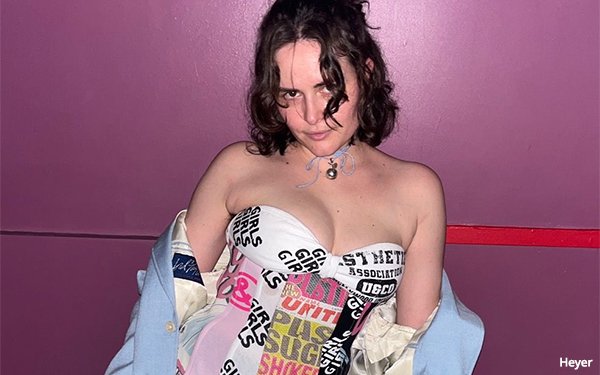
Kelley Heyer, a TikToker with over 300,000 followers, has
filed a lawsuit against Roblox that claims the virtual gaming company turned her viral Charli XCX “Apple” dance into an in-game emote without permission or compensation.
The dance
went viral shortly after Heyer posted it on TikTok last June, about the same time singer-songwriter Charli XCX’s album “Brat” was gaining its now-iconic status across the globe.
Charli XCX even increased Heyer’s virality after inviting her to dance on stage at a live show in New York City.
Heyer’s dance also appeared in countless TikTok videos, including
those by Kylie Jenner and actress Daisy Edgar-Jones, becoming a major cultural trend.
Roblox allegedly transformed the creator’s dance into an “emote” – a purchasable
animated expression for in-game avatars -- without asking permission or signing an agreement to license Heyer’s choreography.
advertisement
advertisement
According to Heyer’s legal team, Roblox has
accumulated $123,000 from selling over 60,000 emotes of the dance.
“As a platform powered by a community of creators, Roblox takes the protection of intellectual property very seriously
and is committed to protecting intellectual property rights of independent developers and creators to brands and artists both on and off the platform,” Roblox said in a statement.
Roblox
has a history of working directly with Charli XCX, inviting the popstar to play a virtual in-game concert in 2022, then signing a deal with the artist last year to use her music and likeness as part
of another in-game concert within the “Dress to Impress” Roblox experience.
In the lawsuit, Heyer’s lawyers make it clear that these previous deals do not apply to the
creator’s dance.
“Kelley is an independent creator who should be compensated fairly for her work and we saw no other option than to file suit to prove that,” says Miki Anzai,
who is representing Heyer. The creator was reportedly discussing a license for the dance with Roblox, but never finalized an agreement.
Roblox says it is “confident in its position and
the propriety of its dealings in this matter and looks forward to responding in court.”
Heyer says that Fortnite -- another virtual gaming platform -- also used her dance, but only after
legally licensing her choreography.
As Roblox builds out its in-game advertising opportunities, creators will become even more crucial to its strategy. Violating trust within the creator
ecosystem, especially regarding monetization, could severely hurt the platform’s reputation and revenue intake.